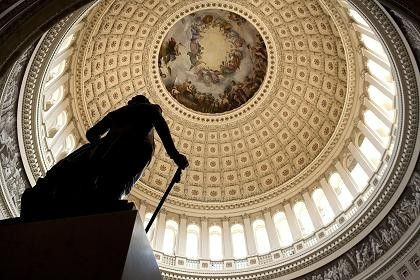Congress Warns of Bailout for FHA Mortgage Fund

The Federal Housing Administration (FHA)'s mortgage insurance fund is threatened by declining home prices and could require a taxpayer bailout, Congress members said at a hearing on Thursday, echoing an earlier report.
When a red flag's in front of us, we need to pay attention, said Congresswoman Shelley Moore Capito, a Republican from West Virginia. A bailout to the FHA is something that's going to be intolerable to the American people.
FHA is a disaster in the making. If we're not careful, it may become Fannie Mae and Freddie Mac, the sequel, said Jeb Hensarling, a Republican of Texas, referring to the residential mortgage backers that were seized by the government prior to the financial crisis and have required over $160 billion in combined taxpayer assistance to date.
Unlike Fannie and Freddie, the FHA never insured subprime mortgages and saw its market share decrease to around two percent during the boom. But after the housing collapse, it became a critical part of the mortgage market and now backs around a third of U.S. mortgages, including the bulk of first-time homebuyers.
The FHA said in its recent annual report that cash reserves had fallen to $2.6 billion, down from $4.7 billion, with a capital reserve ratio is now 0.24 percent of its total insurance base of around $1 trillion, down from 0.50 percent in 2010. The agency has a Congressional mandate to have reserves of at least two percent of its insurance base, but has not reached that level since 2008. Losses are expected to reach $26 billion within a few years.
Shaun Donovan, Secretary of Housing and Urban Development (HUD), which oversees the FHA, acknowledged on Thursday that it could face financial difficulty in the coming year, particularly if home prices continue to deteriorate.
We need to be vigilant, because none of us know where home prices will go, he said. There are serious risks to the fund.
One way to strengthen the fund would be to further increase the premiums that lenders pay for the FHA to guarantee loans, which would be the fourth increase under the Obama administration. Donovan also said that the FHA had taken steps to better calculate risk, and recently insured mortgages were yielding more cash. He noted that the annual report predicted that the agency's cash reserves should recover to reach the two percent level by 2014, an earlier estimate than last year's report.
Ultimately, Donovan hopes to lessen the mortgage market's reliance on the FHA and have the private sector re-enter the marketplace. But with lenders still skittish after the housing collapse, government-backed mortgage guaranteers appear to be the main source for homeowners for the foreseeable future. Last month, Congress raised FHA mortgage limits to $729,750, widening the number of homes eligible for FHA mortgage financing.
Loan limits need to come down and go to historic levels, said Donovan, adding that he hoped to shrink the government footprint in a measured way, but didn't expect the private sector to come in overnight.
© Copyright IBTimes 2025. All rights reserved.




















